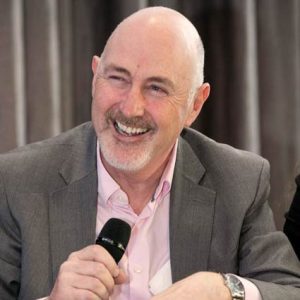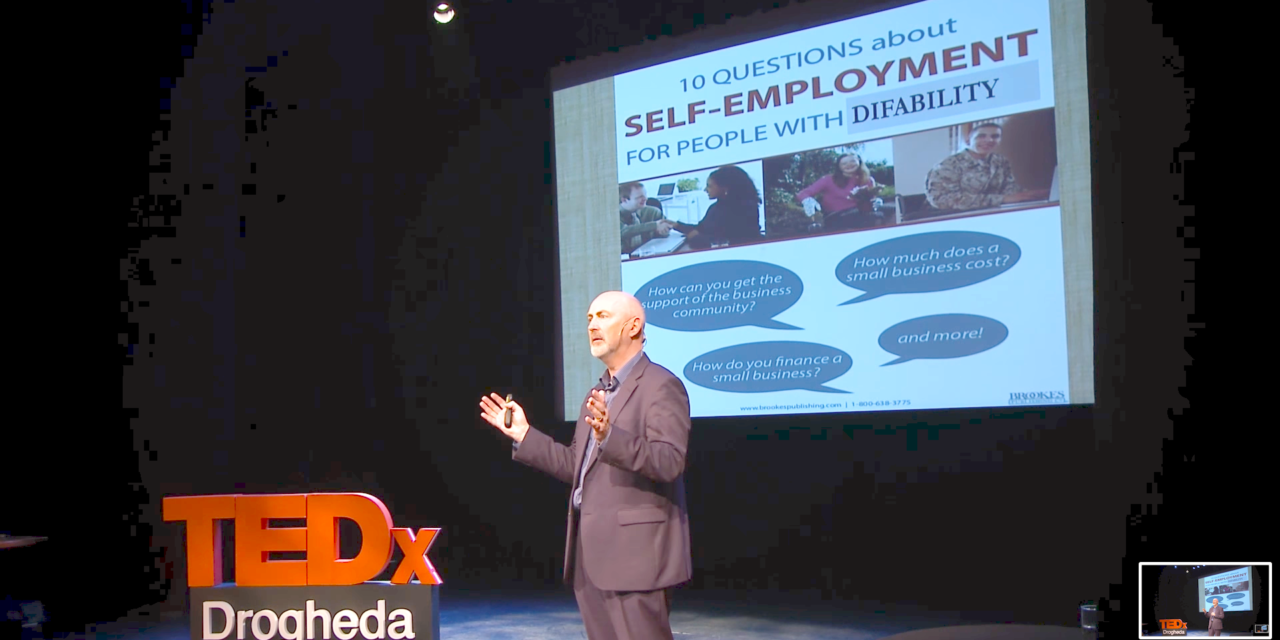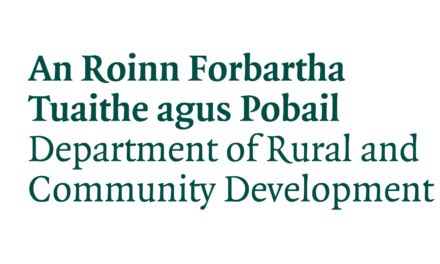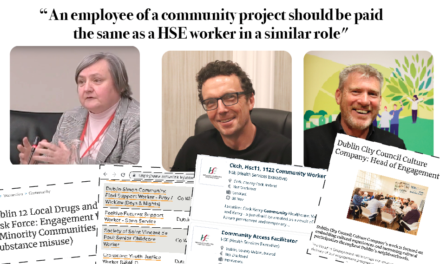Since last September, people with a disability who wish to start their own business have an opportunity to do so through the Self-Employment for People with Disabilities module within the Continuing Professional Development programme at Technological University Dublin.
The first course ran for 12 weeks of lectures and 4 more weeks to complete a business plan and present it to a panel of funding advisors. The course includes lectures, guest speakers looking at the entrepreneurial topic of the week and successful entrepreneurs with disabilities.
“By having people within the community talk about their challenges and be open and honest about the issues they face and how they overcame them, it turns out for many that was the most impactful part of the programme,” said Professor Thomas M. Cooney, professor of Entrepreneurship at TU Dublin and the module co-ordinator. “It made them believe it was possible.”
Sponsored by Pobal and supported by the Open Doors Initiative, the twenty participants did not have to pay for the module and were allocated a business mentor from their Local Enterprise Offices for one-on-one support.
Participants could choose how much they wanted to utilise the programme’s scope, whether just to develop their business idea, complete their business plan in order to receive 5 ECTS credits, or pitch to a panel of industry professionals.
Accessibility was key to the success of the course. “Online really works because it enabled participation from across the country,” said Cooney, citing how participants joined in from ten counties.

• Prof. Thomas Cooney.
“There was a huge geographical spread that wouldn’t be possible in person,” said Cooney.
Recorded lectures allowed participants to rewatch lectures if they had any health conflicts on lecture day or wanted to freshen up on the lesson.
“We need to get the message out that self-employment is a real option”
– Thomas Cooney.
Identifying the challenges
In his 2020 paper* titled ‘Entrepreneurship for People with Disabilities in Ireland’, Professor Cooney highlighted how specific challenges arise for people with disabilities beyond the normal obstacles of entrepreneurship, reasoning why tailored support for people with disabilities is necessary.
Challenges identified through international research (quoted in Cooney’s 2020 paper) included:
– Disinterest / discrimination / lack of understanding by personnel in lending institutions and business support services.
– Difficulties in obtaining start-up capital due to poor credit ratings (often caused by low income employment or unemployment).
– A lack of role models.
– Loss of income received through social welfare (although in Ireland’s case the Back to Work Enterprise Allowance negates this challenge for the first two years).
– Lack of access to appropriate support or training not tailored to their individual needs.
Previous tailored support was limited in Ireland, partly due to the inaccessibility of location-based initiatives, or the lack of targeted funding and supports for those living with disabilities.
“This work cannot be about delivering courses alone,” said Cooney. “We’ve got to change the conversation around labour market activation for people with disabilities to be more than just ‘getting a job’. We’ve got to include self employment as part of the conversation, and to ensure that welfare supports enable that to happen rather than be a barrier to it.”
Success to be repeated
By the close of the 2021 course:
• 11 of the 20 participants achieved the academic accreditation of 5 credits.
• 7 students made presentations to a panel of banking and investment professionals for advice on funding.
Cooney expects a half-dozen businesses to start up from the plans devised during the programme.
Damien English, Minister of State at the Department of Enterprise, Trade and Employment, told the department in February that a post-course survey “was hugely positive” and Enterprise Ireland plans to deliver diversity and inclusion training for Local Enterprise Office staff this year to help staff “understand the needs of all entrepreneurs seeking assistance.”
Due to receiving 38 applications for its first iteration, a repeated course was anticipated from the beginning. Professor Cooney confirmed the course has secured an undisclosed-sponsor to deliver the programme over the next three years, starting this September.
“We need to get the message out that self-employment is a real option,” said Cooney.
The application process for the Self-Employment for People with Disabilities 2022 course is expected to open in June. In the meantime, those interested can email Professor Cooney with any questions they have about the course.
E: thomas.cooney@tudublin.ie
* Professor Cooney’s paper ‘Entrepreneurship for People with Disabilities in Ireland’ (16 pages) is available online.
“If they did it, so can I” – Christina McDonald, owner of Grá-Nua





